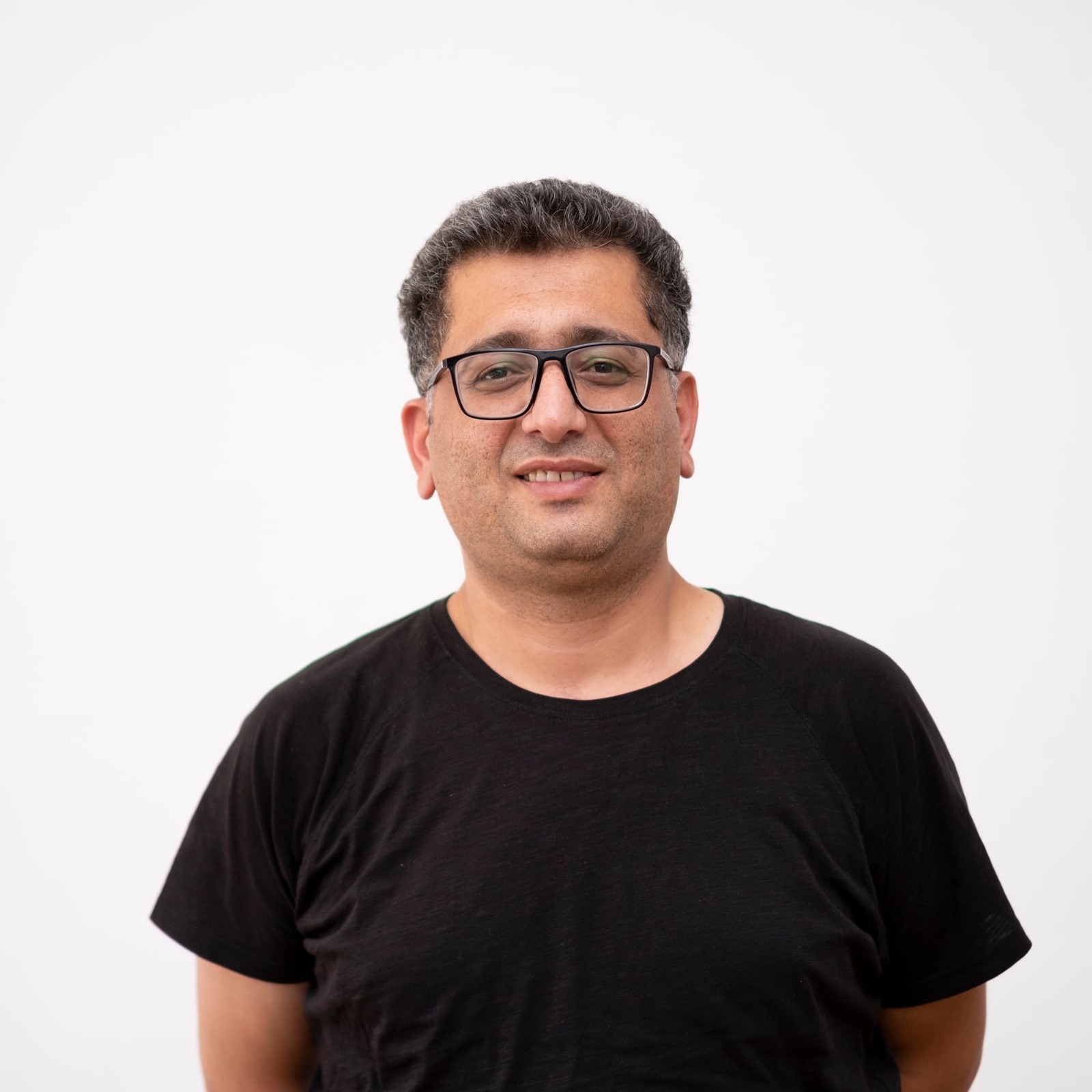أربعة أعوام تقريبا، وأنا أجلس في غرفة لأكتب وأحرّر الأخبار والتقارير، لم أشاهد خلالها شيئًا على الأرض إلا بعد ترك المكاتب والتوجه مضطرا للعمل كصحفي حرّ (فري لانسر) لا يجتمعُ صباحا ليُناقش مع صحفيين ومحررين ما يجري في البلاد، وإنما يبحث عن قصةٍ على الأرض تستحق أن تُروى.
وجدتُ قصّةً عند سكّان البلدات الحدوديَّة بين الأردن وفلسطين المحتلة في يناير/كانون الثاني 2018، وببحثٍ في أرشيف الصحافة وجدتُ تقارير كثيرة عن الموضوع مكتوبةً بأفضل ما يكون، ومع كل الشروط التي يحتاجه التقريرُ ليكون تقريرا، لكن مع صفةٍ إضافيّة؛ لا قصص وحكاياتٍ في هذه التقارير، لا صور من هناك، لذا قرَّرت البدء برواية قصة "نقاط الموت.. الحرب غير المعلنة"، وهي حربٌ يشنها أردنيون أفراد بين فترةٍ وأخرى على إسرائيل عبر نهر الأردن.
بعد خمسة أشهر من العمل على القصة، نسيت وبلا رجعةٍ كل ما أنجزتُه من خلف المكتب، إذ لم يكن في الحقيقة كل ذاك العمل غير ثرثرات ومواد ميتة تصلح لوضعها في الأرشيف بين الغبار وكل الأموات طيبي القلوب.
القصة في مكان آخر
قبل العمل على التقرير، قدم المسؤول -وهو صحفي يعرف الكثير عن العمل في الميدان- بعض النصائح مثل: اصطحاب أحد منفذي العمليات المفرج عنهم بعد أسر لسنوات طويلة، وإجراء المقابلة معه قريبا من منطقة العملية.. لا مقابلات مكتبية أو بعيدة عن الأرض، ودع الآخرين يتحدَّثون.
على هذا الأساس، وُلدت الحكايات واحدةً بعد أخرى، وقادت التقرير إلى مساحات منسيَّة؛ السيادة على الأرض الأردنية، مراوغات مُنفذي العمليات عبر الحدود، حركة كاميرات نقاط جيش الاحتلال الإسرائيلي، أسماء بعض المناطق التي نفذت منها العمليات التي تختلف عن مسميات خرائط غوغل والدوائر الرسمية.
قصص قصيرة في القصة الكبيرة
لم تتوقف القصص عن ولادة بعضها لبعض، ومنذ العام 1967 وحتى هذه الأيام، يتذكر أهل بلدة حدودية قصة اقتحام وحدة قوات خاصة إسرائيلية للأرض الأردنية عام 1970، أي بعد انتهاء الحرب بسنوات.. معلومات لم تُذكر في التاريخ أو في تقرير سابق، وأخرى غير موجودة أصلا في معاهدة السلام الأردنية الإسرائيلية.
عُدنا يومها بقصص داخل القصة الأساسية"نقاط الموت.. الحرب غير المُعلنة مع جيش الاحتلال الإسرائيلي"، وهي النقاط التي شهدت الاشتباكات بين مجهولين أفراد وبين الجيش الإسرائيلي على طول الحدود منذ هدنة 1967 وحتى العام 2018.
لدى الناس رواية أخرى غير الروايات الرسمية على الدوام، قد يحصل صحفي الديسك على قصة من خلال مقابلة عبر الهاتف، لكن القصة الأكبر والأكثر إثارة، ستكون هناك في الأحاديث والثرثرات الطويلة مع الناس على الأرض، وما يُمكن لصحفي الميدان مُعاينته من تفاصيل صغيرة تسحبه إلى قصص أخرى.
أخطاء مقابلات الهواتف
خلال عمل الروائي الكولومبي غابرييل ماركيز على تقرير صحفي عن لاعب كرة القدم البرازيلي سيباستيان بيراسكوتشيا لجلب قراء إلى المجلة الثقافية حديثة التأسيس "كرونيكا" إذ كان الناس مولوعين بالرياضة هناك، اطَّلع من مكتبه على العديد من التقارير، وكان أفضلها لخيرمان باراغاس.
أجرى ماركيز محادثة طويلة مع اللاعب، ووصفه بأسلوبه الروائيّ المولع بالتفاصيل، كأفضل ما يكون بعد مكالمة مطولة معه، وعرَّفه بأنه من أصول إسبانية، من إقليم الباسك، وأطال ماركيز التحليلات بناء على هذه المعلومة التي استوحاها من اسم اللاعب، دون أن يُشاهد له أي مباراة في كرة القدم، أو يلتقيه على أرض الواقع.
لقد كادت تلك الحادثة أن تطيح باسم ماركيز في عالم الصحافة، إذ لم يكن اللاعب بيراسكوتشيا غير "زنجيّ غامقٍ من أفضل سلالة أفريقيّة"(1). بعد نشر التقرير، بعث قارئ رسالةً إلى ماركيز يقول له فيها إنه صحفي رياضي غير قادر على التفريق بين "كرة وقطار".
تذكرتُ هذه الحادثة الطريفة، وتذكرت معها كل الأخطاء أيام العمل في ديسك الأخبار، التي يُمكن من خلالها أن يوجه لي قارئ ما مقولة مشابهة في المستقبل، ولْيسترْنا الله كي لا يكتشف أحد تلك الفظائع التي كنّا نقوم بها، كأن نواصل القول على العادة إن حريقًا مفتعلًا أحدثته طلقات التنوير الإسرائيلية على الحدود الأردنية بالبيارات لأنَّ إسرائيل تتسلّى في الليل، في حين كان أحدهم يقطع النهر عبر هذه البيارات كثيفة الأشجار ليُواجِه بمسدس أو رشاشٍ دوريّةً لجيش الاحتلال، فيضيء الجيش المنطقة بطلقات التنوير ويحرق تلك البيّارات بحثًا عن المنفذ وإشعال حربٍ معه.
أين تُوجد القصص؟
القصّة التي تُعاين تفاصيلها على الأرض، لا القصة التي تُعرض عليك، هي القصة الأفضل. عند صحفيي الميدان يروون التفاصيل ويروون القصص، بينما في المكتب تُعرض التفاصيل على الصحفي ليكتب منها قصّة، وليس له ترف الاختيار إلا في طريقة العرض وبعض التغييرات الثانوية.
قصص المكتب تعتمد في البداية على ما يقدمه الآخرون من مادة مكتوبة: أخبار، كتب، تحليلات، دراسات. أما على الأرض فتعتمد القصّة على ما تراه وتسمعه، لا ما يُراد لك أن تسمعه. ويُوفر العمل على الأرض ترف المشاهدة، واستبعاد تفاصيل لو كنت في المكتب لظننتها مسلمات، في حين تكون على أرض الواقع مستحيلة الحدوث أو العكس.. يبدأ الفرق إذًا في ما تراه على الأرض، لا ما يُراد لك أن تراه.
تطوير أساليب تعريف وهروب
عودة لمنفذي العمليات عبر نهر الأردن.. رافقني مصوّرٌ ودليلٌ، ورأيتُ كيف طوَّر المصور -الذي لا يعمل مع مؤسسة- منظومةَ حذرٍ شديدة التعقيد تبدأ من طريقة التعريف بنفسه للناس القاطنين على الحدود ليأخذ صورةً أو مشهدا قصيرا، وطريقة انسحابه حين يرفض أحدهم وجوده في المنطقة، بالإضافة إلى قدرته على إخفاء مادته أثناء التصوير، ومراوغته في تصوير بعض النقاط العسكرية الإسرائيلية الحدودية.
دخلت معه أثناء العمل على التقرير قرب النقطة صفر على النهر في نقاش حادٍّ حين رفض تصوير نقطة عسكرية إسرائيلية على الحدود، قال يومها: من سيقنع الجنود على الطرف الآخر حين أرفع الكاميرا أنها ليست قاذف "آر.بي.جي".. هم لا يعرفون أنني مصوّر، أو أن مصورًا موجود هنا، ليس معنا إذن تصوير من مؤسسة نعمل بها، ولا تنسيق بين الطرفين.
سيكون من الصعب جدا أن تدهم القوات الأمنية مؤسسة صحفية حيث يعمل صحفيو الديسك، لكن من السهل جدا أن يدهم عنصرٌ أمنيٌّ واحدٌ أو مواطنٌ غاضبٌ صحفيَّ الميدان، ويُصادر أو يُتلف جهده، وبعد ذلك يعتذر عن الخطأ، ويكون جهد أيامٍ طويلة قد ضاع إلى غير رجعة.
تحت هذه المخاطرة، ستجد عند صحفي الميدان الكثير من طرق وأساليب الهروب وإخفاء المعلومات الأولية والاحتفاظ بها، بل ربما أيضًا ذاكرة جيدة يُستعان بها لحفظ الأماكن ومختصر للمقابلات.








































